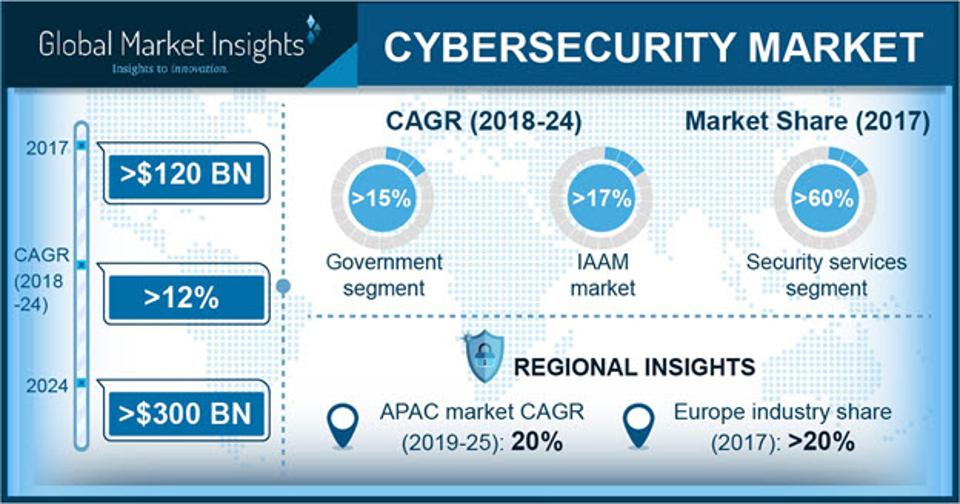Technology
NCS Urges FG to Explore $45bn Cybersecurity Market

By Adedapo Adesanya
The Nigeria Computer Society (NCS), the umbrella body for all information technology practitioners in Nigeria, in its advocacy capacity, has called on the government at all levels in Nigeria, to tap into the opportunities in the multi-billion dollar cybersecurity market in Africa.
The association made this plea in a communiqué issued at the end of its second Stakeholders’ Forum on Cybersecurity held at the National Open University of Nigeria (NOUN) in Abuja, recently.
The society also called on the federal government to harness local talents to tame the tide of attacks which have been on increase in the recent times.
Speaking on this, the President of NCS, Mr Adesina Sodiya, said the Africa (& Middle East) cybersecurity market will be valued at about $45 billion within the next two years, noting that this presents Nigeria with huge opportunities to create jobs and leverage experts’ skills to become cyber-battle ready.
“The Nigerian society is advised to key into the sector and generate jobs. There is also currently a shortfall of 2.3 billion jobs in cybersecurity. So, Nigeria needs to produce cybersecurity experts.
“Since it was established, NCS has been strategic in its advice to members, governments, other competent authorities and the public, on national and international policy matters affecting the computing, information and systems technology industry.
“Consequent upon the foregoing, the Nigeria Computer Society has observed that cyberattacks in Nigeria today is on the increase,” the President said.
Mr Sodiya explained that the observation was based on current local and international reports.
“Individuals, governments, and corporate organizations are losing a huge sum of money and properties due to cyberattacks. Threat techniques are continually changing, and attacks are getting more sophisticated by the day, it is believed that this trend will continue if nothing is done,” he said.
He expressed NCS’s commitment to IT development in Nigeria which informed the forum geared towards addressing the factors mitigating efficient use of IT for leapfrogging development.
Meanwhile, the forum resolved among other things; that due to the impact of COVID-19 on health sector cybersecurity space, the government should include the health sector infrastructure in the list of critical national infrastructure and there should be a deliberate effort to come up with programs to build the capacity of young Nigerians in the field of cybersecurity hence government needs to invest in catching the young ones.
“There is a need for the government to train more of our youths on ethical hacking and how to use historical data through the help of artificial intelligence to fight cybercrime. These pieces of training should be either academic or vocational.
“The government should ensure that all organisations have a security policy in place. Chief Executive Officers should be trained to identify the sensitive data used in their organisations,” it disclosed.
It was also recommended that cybersecurity training should also be included at the Basic education level; “the pieces of training should be made interesting for example the training can be in form of games for kids to help develop their interest.
“There is a need to develop our own internal resources and technology to store our sensitive data as a nation. NITDA should enforce the use of .gov emails in all government agencies for security reasons.
“There should be enhanced enforcement of the Nigerian Data Protection Regulation (NDPR) laws. Chief Executives who violate the laws should be sanctioned.
“The Computer Registration Council of Nigeria should look at ways to develop professional certifications for Nigerians locally. This will save the cost of Professionals getting it internationally.
“The government and private sector should take cybersecurity awareness to the grassroots to enlighten the underserved and rural people. This can be done via radio jingles, cartoons, traditional dance, billboards, and media houses,” the group said.
The NCS Forum also suggested that government should introduce internet monitoring, to blacklist fraudulent sites and fake news sites, among other recommendations.
The NCS was established in 1978 and has over 10,000 professional members across the country and over five hundred thousand student members in the higher institutions, universities, polytechnics, colleges of education, and other accredited computer training centres in Nigeria.
Technology
The Future of AI Detector Technology in Content Review

AI-written content has already changed how people publish online. Articles, emails, and reports now pass through review systems before going live. Because of this shift, the role of an AI checker free continues to grow. Many users want to know what comes next and how these tools may affect writing in the coming years.
Future detection tools will look different from today’s versions. Current systems rely heavily on surface patterns. That approach is starting to break down as AI writing improves.
Detection Models Will Change Their Focus
Most detectors today analyze predictability and structure. This method worked when AI writing sounded repetitive. Newer AI models now produce varied output. Simple pattern checks will lose value over time.
Future systems will rely more on comparison than pattern spotting. Models may compare writing against known human samples instead of fixed rules. This shift could reduce random false flags.
Context awareness will also improve. Detection tools may evaluate topic flow instead of isolated sentences. That change could help reviewers understand content better.
Training Data Will Update More Frequently
Training data controls detection quality. Older datasets already struggle with newer AI models. Future tools will update training material more often.
More human writing styles will enter training systems. Blogs, emails, and informal writing will receive better representation. This change may reduce bias against simple language.
AI-generated samples will also diversify. Detection systems must understand modern AI behavior. Without frequent updates, reliability will continue to drop.
Scores Will Become Less Central
Percentage scores cause stress for many users. These numbers often create confusion instead of clarity. Future tools may move away from strict scoring.
Visual feedback could replace raw percentages. Highlighted sections may show why something looks artificial. This approach supports editing without panic.
Content reviewers will likely focus on explanation instead of judgment. Guidance helps writers improve clarity rather than chase numbers.
Editing Tools Will Influence Detection Design
Editing tools already affect detection outcomes. A paraphrasing tool can change surface structure without changing meaning. Future detectors may learn to separate helpful edits from mechanical rewriting.
Systems may track rewrite behavior more carefully. Heavy automated paraphrasing may become easier to spot. Manual editing could receive more tolerance.
A summarizer removes depth and context. Detection tools may begin flagging overly compressed structures rather than labeling the entire text. This change would support fairer review.
A grammar checker also affects future detection. Perfect structure often triggers suspicion today. New detectors may learn that clean grammar does not equal automation.
Review Workflows Will Become More Human-Centered
Future content review will likely combine tools and people more closely. Detection systems will guide attention rather than decide outcomes.
Editors may use detection as a starting point. Human review will confirm relevance and intent. This balance protects writing quality.
Writers will also gain clearer feedback. Instead of rewriting blindly, they will understand why something appears artificial.
Regulation and Ethics Will Shape Development
Legal and educational pressure already influences detector design. Schools and publishers demand fairness. Future systems must reduce bias to remain trusted.
Non-native writers face unfair flags today. Improved training may reduce these errors. Ethical design will matter more than raw accuracy.
Transparency will also increase. Users will expect explanations for results. Black-box decisions will lose acceptance.
Limitations Will Still Exist
No detection system will ever confirm authorship with certainty. Human writing varies endlessly. AI writing continues to evolve rapidly.
Future tools may become better guides. They will never replace judgment. Understanding limits will remain essential.
What Writers Should Expect Going Forward
Writers should prepare for guidance-based tools. Detection will assist editing rather than enforce rules. A calm review will replace fear-driven checking.
Natural writing will remain important. Clear ideas still matter more than technical scores. Tools will support this approach rather than punish it.
Final Thoughts
The future of the AI detector points toward smarter review, not stricter judgment. Pattern chasing will fade as context gains importance. Writers and editors will benefit from clearer feedback and fewer false alarms.
Content review will stay human-led. Technology will assist quietly. That balance will define the next phase of writing review.
Technology
African Tech Companies Are Growing Through Acquisition, Not Funding

The tech sector in Africa changed noticeably in 2025. Instead of raising large rounds of funding, many companies chose to grow by buying or merging with others. Data from industry reports show that mergers and acquisitions reached a record high. A total of 67 deals were closed last year, up from 39 the year before.
This shift shows that many founders and investors now see acquisition as a way to gain scale, enter new markets, or add new products. In many cases, deals were done because markets for public listings remained quiet and funding rounds became harder to secure.
These deals helped companies avoid the uncertainty of public markets. They gave buyers the chance to take over existing customer bases and local licences. This change in strategy suggests that consolidation is now a part of how tech companies on the continent plan their growth.
Tools and Online Services in Acquisition Strategy
As more tech firms expand through acquisition, they often rely on practical tools to manage larger and more scattered operations. Common services include project management platforms, shared storage solutions, and customer support systems. These tools allow companies to merge teams, align workflows, and respond quickly to user needs after a deal is completed.
Cross-border operations also raise the need for secure remote access. Some firms use encrypted browsing tools to safely link with internal systems while operating in new or less-regulated markets. VPNs are one of the most common solutions for this purpose. They help ensure that sensitive data stays protected during transitions and early-stage integrations.
Some companies test such tools using a VPN free trial to determine whether they meet the technical requirements of new locations. This can help assess performance before investing in a long-term solution, especially during early stages of a merger where operations may still be shifting. Simple steps like this often make a difference in how smoothly the post-deal period unfolds.
How Acquisition Has Shaped Key Sectors
Acquisition activity in Africa’s technology scene was broad in 2025. Fintech accounted for a large share of the deals. Moniepoint picked up smaller financial software firms in Nigeria. Rank, which used to be called Moni, bought companies to improve its banking licence and expand payment options.
E-commerce and logistics saw changes, too. Twiga Foods made moves to secure its supply chain by buying local distributors. Logistics platform Logidoo acquired Kamtar in a cross-border deal that brought more regional reach. Telecom and media also saw activity when AXIAN Telecom added a strategic stake in Jumia.
Healthcare and tech services were part of the trend as well. HearX bought Eargo to bring new health solutions together. In deep tech, Adapt IT purchased ResRequest to add software tools to its portfolio. These examples show that buyers are looking across different sectors, not only in finance.
Cross-Border Expansion and Global Reach
African tech companies did not limit their acquisitions to the continent. Some deals took these firms into Europe and the Americas. A number of African startups made purchases or established operations in the United Kingdom and the United States. This included deals where tech firms acquired specialised service providers to enter new markets.
Countries such as Uganda, Senegal, and Morocco also hosted acquisitions by African companies from outside their borders. These moves gave buyers access to new customers and technology. They also helped sellers find exit options when local investors were limited.
This pattern of global expansion shows that African tech firms are no longer seen only as local players. They are active in a wider market and interact with international partners in ways that were rare a few years ago.
What This Means for the Future
Now in 2026, the pattern set in the previous year is already shaping how African tech companies approach growth. The record number of acquisitions in 2025 marked a new way forward. Many firms are choosing to buy their way into markets, licenses, and customer networks rather than rely on long fundraising cycles.
This year, analysts expect acquisition-led growth to remain a top strategy. Companies that move early can gain access to talent, local market knowledge, and operational infrastructure without having to build everything from the ground up.
Sectors like fintech, logistics, healthcare, and cloud services are already seeing follow-up deals. As 2026 continues, acquisition appears less like a side strategy and more like the main way tech companies in Africa plan to grow.
Technology
Entries Open for 2026 Google for Startups Accelerator Africa

By Aduragbemi Omiyale
Applications for a 12-week AI First hybrid programme, designed for Series A startups based in Africa or building Africa-centric solutions with AI and machine learning, have opened at g.co/acceleratorafrica.
This is an initiative of Google and it reenforces the tech giant’s commitment to accelerating AI-driven scientific and technological breakthroughs across the continent.
The programme, known as the Google for Startups Accelerator Africa, is in its 10th edition in 2026 and it is targeted as AI-driven scientific breakthroughs.
Entries for the cohort began today, Thursday, February 5, 2026, and will close on Wednesday, March 18, 2026, with the hybrid programme starting in April 2026 for 12 weeks.
A statement from the organisers disclosed that participants will benefit from access to Google’s AI expertise and technical resources, alongside mentorship from seasoned AI professionals and invaluable networking opportunities.
Since its inception in 2018, the Google for Startups Accelerator: Africa program has supported 180+ startups from 17 African countries. Collectively, these startups have raised over $350 million in funding and created more than 3,700 direct job opportunities in the region.
“Africa’s tech landscape is seeing a vibrant shift toward deep-tech innovation. For Class 10, we are focusing on the potential of AI to drive health and societal benefits, providing the infrastructure and expertise to turn these startups into the research labs of the continent,” the Head of Startup Ecosystem for Africa, Folarin Aiyegbusi.
-

 Feature/OPED6 years ago
Feature/OPED6 years agoDavos was Different this year
-
Travel/Tourism9 years ago
Lagos Seals Western Lodge Hotel In Ikorodu
-

 Showbiz3 years ago
Showbiz3 years agoEstranged Lover Releases Videos of Empress Njamah Bathing
-

 Banking8 years ago
Banking8 years agoSort Codes of GTBank Branches in Nigeria
-

 Economy3 years ago
Economy3 years agoSubsidy Removal: CNG at N130 Per Litre Cheaper Than Petrol—IPMAN
-

 Banking3 years ago
Banking3 years agoSort Codes of UBA Branches in Nigeria
-

 Banking3 years ago
Banking3 years agoFirst Bank Announces Planned Downtime
-

 Sports3 years ago
Sports3 years agoHighest Paid Nigerian Footballer – How Much Do Nigerian Footballers Earn












